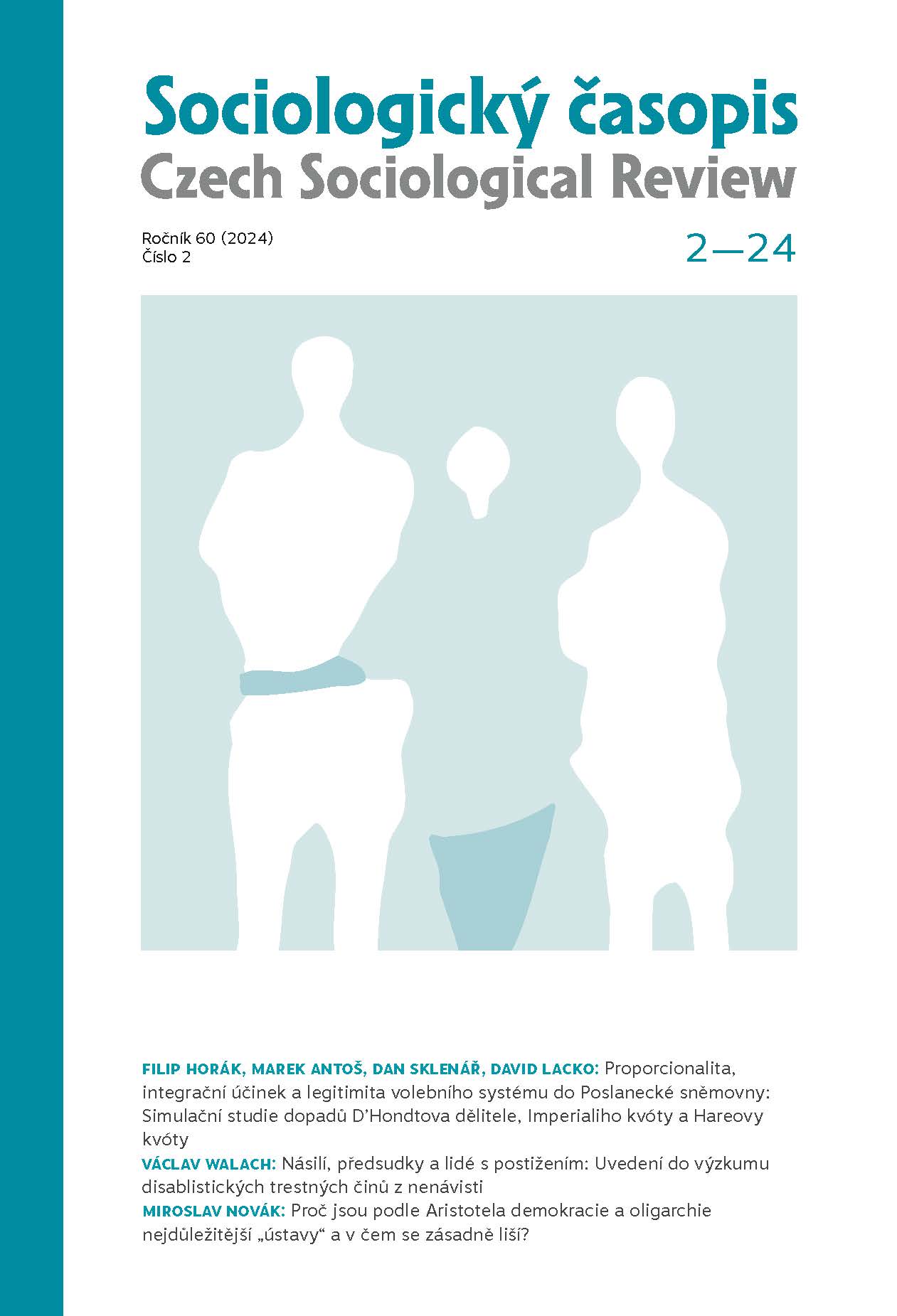Proč jsou podle Aristotela demokracie a oligarchie nejdůležitější „ústavy“ a v čem se zásadně liší?
Why Are Democracy and Oligarchy the Most Important ‘Constitutions’ in Aristotle’s View and How Do They Fundamentally
Author(s): Miroslav NovákSubject(s): Philosophy, Government/Political systems, Politics of History/Memory
Published by: AV ČR - Akademie věd České republiky - Sociologický ústav
Keywords: Aristotle; democracy; oligarchy; equality and inequality; mixed ‘constitutions’; politeia or republic; representative democracy; elections
Summary/Abstract: According to Aristotle, democracy and oligarchy are empirically the most widespread and analytically fundamental ‘constitutions’. I analyse how in different places in his Aristotle ‘positively’ defines and differentiates between democracy and oligarchy. At the same time, I substantiate in detail a new interpretation of Aristotle‘s view that significantly differs from the current interpretation. ‘Combining’ the elements, procedures, and principles of democracy and oligarchy gives rise to mixed 'constitutions', a special place among which is occupied by the politeia or republic, which is the best regime ‘for most states and for most people’. I show the ways in which it is possible, according to Aristotle, to form such a regime. Carl Schmitt and, later somewhat differently, Bernard Manin draw a link between Aristotle’s mixed regime and the representative democracies of today.
Journal: Sociologický časopis / Czech Sociological Review
- Issue Year: 60/2024
- Issue No: 2
- Page Range: 187-211
- Page Count: 25
- Language: Czech

